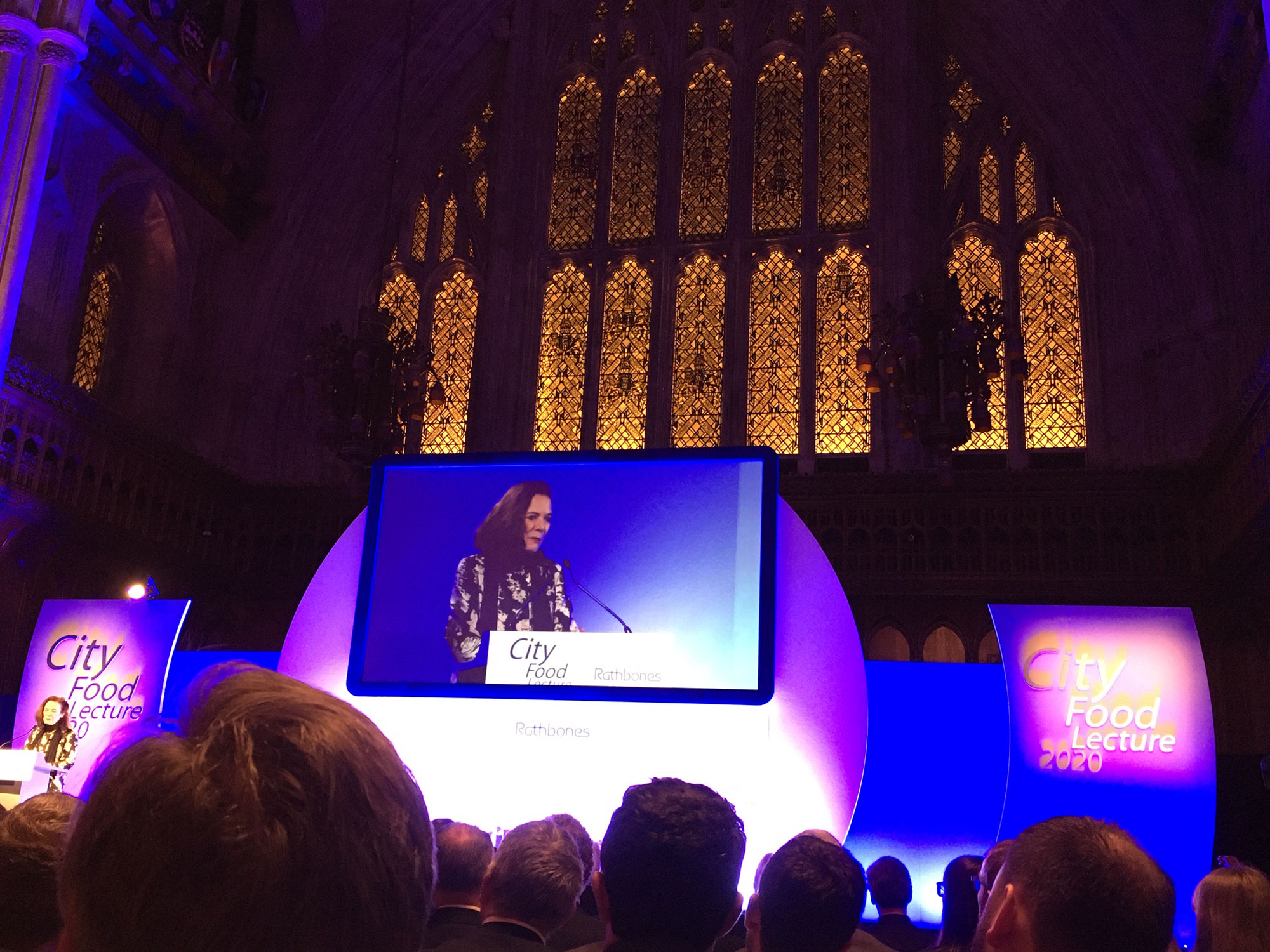
City Food Lecture 2020 provides food for thought
Last week, the MorePeople team enjoyed a very thought-provoking evening at the City Food Lecture 2020, along with around 700 guests from across the food industry. As a sponsor of this prestigious event, we were delighted to invite some of our clients to the event for discussion and debate on current and future food challenges and trends.
The keynote speaker was Professor Louise Fresco from Wageningen University, a highly influential thinker and commentator on global food issues.
Fresco’s talk focused on the trends and controversies around animal proteins, and she started by highlighting how relatively recently it was that it was acceptable to see meat hanging on display in the butchers that actually still resembled a dead animal. The experience today is far removed from this, with meat being cut into perfect shapes and packaged so that consumers feel less like they are eating animals.
This is a trend that is being driven by millennials who, it is believed, share a widespread opinion that eating meat is the wrong thing to do because of its alleged impact on climate change. We no longer want to see where the meat actually comes from and this is mirrored in much of the food chain.
However, meat consumption has remained stable over the years, demonstrating that there are inconsistencies in what we say and do.
With regard to the impact of meat production on climate change, Fresco highlighted that a large proportion of land across the world is not suitable for crops, but is perfect for animals, so the solution is not as easy as taking animals away.
Food waste is also a huge problem with a shocking 500 calories per person per day being left over. This food waste can be used to feed animals such as chicken and pigs, which would be a good solution.
Fresco was in agreement that people will become more flexitarian in the future, but stressed that meat is here to stay as cutting it out completely is not the answer. Many people’s diets today consist of food with ‘empty calories’, whereas meat is the most concentrated form of protein and therefore a very important source of balanced food. We just need to ensure that we are producing it both sustainably and hygienically.
Where will proteins come from in the future?
She then moved on to look at ‘alternative’ protein sources and whether they are viable options:
•Plants? Plant proteins are incomplete and not easily digestible so you have to be very careful to get the right range of amino acids. However, she did suggest that three quarters of the meat we eat is processed and could certainly be improved with plants.
•Fake meats? These tend to be ultra-processed and are not the best solution nutritionally.
•Insects? Not a good idea on a large scale! As tried and tested at her research centre in the Netherlands.
•Algae and seaweed? Hard to grow.
•Lab-grown meat? Still being tested on a very small scale.
What needs to change?
The food chain has become invisible. The hard work of people in the food chain is hidden. And consequently food has become a source of confusion. Fresco expressed a need for the private sector and government to work together to raise awareness about how our food is produced and how it gets to the consumer.
She outlined the following priorities for the industry:
1.Food has to be grown in the most sustainable way possible, reducing damage to the environment.
2.Food has to be affordable.
3.Food has to be nutritious – no more empty calories!
4.Food has to be safe.
The lecture was followed by a very lively Q&A session with the panel who attempted to answer the key questions of: how do we stop the food chain being invisible? And who will be the next generation of farmers?
All of these issues present challenges for the food industry, but it was heartening to hear so much positivity in the room about the future of the industry. It certainly is an exciting one to be involved in!
Link to the speech and panel discussion: https://cityfoodlecture.glasgows.co.uk/
